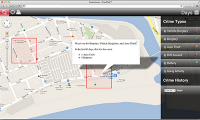-
A woman’s involvement makes San Bernardino shooting rare among mass shootings

The shooting in San Bernardino, California marked the 355th mass shooting in the United States in fewer than as many days in 2015. As details emerge regarding the events, it is clear that these types of crimes are morphing and not abating. “Shootings involving mission-oriented females may be a new threshold which should be concerning to all of us, and the incident in San Bernardino might just be a hybrid, and a harbinger, of shootings to come,” says an expert.
-
-
Tashfeen Malik pledged allegiance to ISIS

Tashfeen Malik, one of the two attackers who killed fourteen people in a San Bernardino social service center, used her smartphone to post a pledged allegiance on her Facebook page to Abu Bakr al-Baghdadi, ISIS leader – and officials say that timeline of the attack shows that she posted her message while driving with her husband, Syed Rizwan Farook, in the black SUV in the moments after the attack. The two were killed in a shootout with the police about two hours later.
-
-
DHS, NYPD train on response to active shooters

After months of coordination between the Department of Homeland Security (DHS) Science and Technology Directorate (S&T) and the New York Police Department (NYPD) Counter Terrorism Division, the NYPD conducted an active shooter training exercise on 22 November. S&T says that the exercise not only tested their training and proficiency, but also allowed them to incorporate several commercial technologies that could benefit future emergency situations.
-
-
Effective policing depends on public trust: Report
Public trust and confidence in the police have remained flat for several decades despite a declining crime rate in the United States, a problem that has become especially salient in the wake of recent police shootings of unarmed black men. A new report shows that policing practices focused on respectful treatment and transparent decision making are likely to be more effective than traditional punishment-based strategies in building public trust and encouraging cooperation with the police.
-
-
Husband and wife, identified as San Bernardino attackers, killed in shootout with police

Police shot and killed a husband and wife, both in their late 20s, after the two killed fourteen people and injured seventeen at the Inland Regional Center, a social service center in Sam Bernardino, a working-class community of 200,000 residents about sixty miles east of Los Angeles. The two were identified as Syed Rizwan Farook, 28, and his Tashfeen Malik, 27 (some reports noted that it was not clear whether or not the two had actually married). The couple had a 6-month old daughter.
-
-
45% increase in death by law enforcement in U.S. between 1999 and 2013

Between 1999 and 2013 in the United States, between 279 (in 2000) to 507 (in 2012) people were killed each year by legal intervention or law enforcement, other than by legal execution — a 45 percent increase, mostly among non-whites. In 2013 an estimated 11.3 million arrests in the United States resulted in approximately 480 deaths from legal intervention. Between 1999 and 2013 there were 5,511 deaths by legal intervention.
-
-
NYPD commissioner to Congress: Do not allow people on terror watch list to buy guns
NYPD Commissioner Bill Bratton the other day called on Congress today to “start getting serious” about fixing the loophole which allows individuals on the U.S. terror watch list legally to purchase firearms in the United States. Bratton said: “If Congress really wants to do something instead of just talking about something, help us out with that terrorist watch list, those thousands of people that can purchase firearms in this country. I’m more worried about them than I am about Syrian refugees.”
-
-
N.Y. State Police app helps citizens report suspicious activity
The New York State Police is urging citizens to download a new digital app which allows citizens to capture and report suspicious activity with their smart phones. The app is part of the “See Something, Send Something” campaign which aims to turn willing citizens into the eyes and ears of law enforcement. For example, if a citizen notices an unattended package at a train station of an airport, they could use the app to alert law enforcement.
-
-
2 dead, 7 arrested in French police raid on apartment building in search of attacks’ mastermind
About 200 members of the special units of the French police early Wednesday morning (Paris time) swooped on the Parisian banlieue, or suburb, of Saint-Denis – where the Stade de France, one of the sites of Friday’s terrorist attacks, is located – and arrested seven people. Two people were killed. One of the dead was a young woman who blew herself up with a suicide vest. French Prosecutor Francois Molins told reporters that the operation was a result of a credible tip — in all likelihood, a police informer who resides in the neighborhood — suggesting Abdelhamid Abbaaoud, a 27-year-old Belgian of Moroccan origin, was holed up in an apartment in a residential building.
-
-
U.K. put special British police unit on standby in the wake of Paris attacks
In the early hours of Saturday, following the previous evening’s terrorist attacks in Paris, the British government put a special British police unit on standby for an emergency national mobilization of officers. The move was a precautionary measure taken as the government weighed placing the United Kingdom on its highest state of terrorist alert. There are forty-three local police forces in England and Wales, and raising the terrorist threat level to critical — the highest would have triggered the dispatching of officers from some of these local forces patrol sites and neighborhood in the country’s big cities.
-
-
Berkeley modifies Suspicious Activity Reports guidelines
The Berkeley City Council members said in a meeting last week that Suspicious Activity Reports (SARs), an initiative of the DHS which, through regional and national agencies, disseminates to local law enforcement information on possible terrorist threats, has the potential of criminalizing innocent people. Members of the council agreed that in order to prevent hurting innocent people, the council should adopt a Police Review Commission recommendation to modify Berkeley Police Department orders on Suspicious Activity Reporting. The modification aims to make sure that SARs can be filed “only if there is reasonable suspicion that the individual is involved in criminal conduct.”
-
-
Steam thermography may compete with luminol in solving crimes
Luminol gets trotted out pretty frequently on TV crime shows, but a new technique might someday compete with the storied forensics tool as a police procedural plot device and, perhaps more importantly, as a means of solving real crimes. Researchers developed what they term “steam thermography,” which has the ability to detect blood spots in all kinds of spots — even in spots where luminol cannot.
-
-
Mexico to use drones, satellites in a renewed effort to find dead students
Mexico said it would launch a new search, joined by international experts, for the remains of dozens of students training to be teachers who were abducted and apparently massacred in 2014. Forty-three students were abducted by corrupt municipal police, and then turned over to a local drug gang to be killed. Apparently, the gang leaders believed the students were linked to a rival drug gang in the area.
-
-
Justice Department created new office to focus on domestic terrorists
The Justice Department said this week that it has created a new office which would on homegrown extremists. Assistant Attorney General John P. Carlin announced the move on Wednesday. He said the new office, the Domestic Terrorism Counsel, will be the main point of contact for federal prosecutors working on domestic terrorism cases. Carlin said the new office was created “in recognition of a growing number of potential domestic terrorism matters around the United States.” Following the 9/11 attacks, U.S. law enforcement had shifted its attention, and the allocation of law enforcement and intelligence resources, from domestic to foreign terrorism. The result, security experts say, was that federal authorities had lost sight of domestic extremists. “Looking back over the past few years, it is clear that domestic terrorists and homegrown violent extremists remain a real and present danger to the United States. We recognize that, over the past few years, more people have died in this country in attacks by domestic extremists than in attacks associated with international terrorist groups,” Carlin said.
-
-
Predictive policing substantially reduces crime in Los Angeles during 21-month period

Can math help keep our streets safer? A new study by a UCLA-led team of scholars and law enforcement officials suggests the answer is yes. A mathematical model they devised to guide where the Los Angeles Police Department should deploy officers, led to substantially lower crime rates during a recent 21-month period. The model was so successful that the LAPD has adopted it for use in 14 of its 21 divisions, up from three in 2013.
-
More headlines
The long view
How Male Grievance Fuels Radicalization and Extremist Violence
Social extremism is evolving in reach and form. While traditional racial supremacy ideologies remain, contemporary movements are now often fueled by something more personal and emotionally resonant: male grievance.
